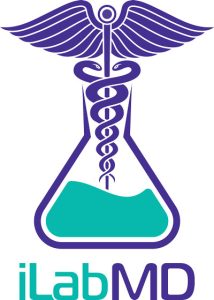Anti-Aging / Longevity
When Conventional Medicine Fails, there is a Functional Medicine Approach at iLabMD
The Power of Personalized Functional Medicine
Understanding the Importance of Initial Consultations
As the world of functional medicine expands, it’s crucial to understand that while you may be tempted to request a lab test without an initial consultation, everyone is unique. The same test that worked wonders for a friend might not be beneficial for you. That’s why at iLabMD, we stress the importance of an initial consultation before proceeding with any testing.
Let's Get to Know Each Other
Understanding you and your unique lifestyle is the cornerstone of curating a treatment plan tailored to your body. Our team of experts are your partners in your journey towards a healthier future.
Know Which Test You Need?
Bypass our initial consultation, order one of our comprehensive tests today and gain crucial insights into your health with our 1-hour, post-test interpretation.
Get To Know Dr. Maria Azizian
Want to know more about the expert guiding your health journey?
Discover the passion, expertise, and commitment that Dr. Maria Azizian brings to your healthcare.
Why the Initial Consultation Matters
During the initial consultation, you'll have the opportunity to discuss your symptoms and health goals with our medical providers. This dialogue helps us guide you towards the necessary tests and away from those that might not be useful in your specific case. We recommend sending us your latest blood work via our HIPA protected portal prior to your initial appointment to give our physicians a better understanding of your health.
Empower Your Wellness Journey With Personalized, On-Demand Healthcare
- Harness Your Health at Home
- Painless Testing with Urine or Saliva
- Blood draw not required for most tests
ORDER ONLINE NOW
Anti-Aging / Longevity Test
includes TruAge Complete / OMICm Age Test by TruDiagnostic. It measures biological age that reflects how healthy the body is, unlike chronological age that measures the years the person has been alive.

Booking Provided by Healthie
The Process of Testing
After the initial consultation and ordering of labs, it typically takes 2-4 weeks for results to come in. Once received, we’ll schedule a review of the results and a treatment recommendation session with the provider.
Please note that occasionally, phlebotomy (blood draw) is needed. In such cases, we will find a lab near you or arrange a mobile phlebotomy technician to come to you. An extra charge ($30-$100) will be applied depending on the phlebotomy service.

Real Results in 5 Easy Steps!
Test results in 2-4 weeks depending on the complexity of your test.
1
Order The Test Packages Online
2
Complete Tests In The Comfort Of Your Home
3
Mail Your Test Specimen to the Lab
4
Receive Your Scheduling Link Once Results Are Available
5
Attend Your Telemedicine Session to Discuss Results
For best results, an initial consultation with a trusted professional is strongly recommended
During the initial consultation, you'll have the opportunity to discuss your symptoms and health goals with our medical providers. This dialogue helps us guide you towards the necessary tests and away from those that might not be useful in your specific case. We recommend sending us your latest blood work via our HIPA protected portal prior to your initial appointment to give our physicians a better understanding of your health.
Learn More About Anti-Aging / Longevity & Testing
Anti-aging labs in functional medicine aim to provide a comprehensive understanding of an individual’s health and aging-related factors. Based on the results of these assessments, practitioners cn develop personalized treatment plans that may include dietary modifications, supplementation, lifestyle changes, stress management strategies, and other interventions to support healthy aging and overall vitality.
The difference between biological age and chronological (real) age is a fundamental concept in functional medicine, which focuses on understanding and optimizing an individual’s overall health and wellness.
Chronological Age (Real Age):
Definition: This is the actual time that has elapsed since a person’s birth. It is the “real age” in years and is the same for everyone born on the same date.
Significance: Chronological age has been traditionally used as a general indicator of health, disease risk, and life expectancy. However, it doesn’t consider individual health status, lifestyle, genetic factors, or environmental influences.
Limitation: Using chronological age alone can be misleading in assessing a person’s health. Two people of the same chronological age can have vastly different health conditions and risks.
Biological Age:
Definition: Biological age refers to how old a person seems based on various biomarkers of health and aging. It’s an assessment of physiological function, cellular health, and overall vitality.
Assessment: Biological age is determined by looking at various factors like telomere length, DNA methylation patterns, protein, lipid, and glucose metabolism, hormonal levels, organ function, and more. These factors give insights into the wear and tear on the body and its systems.
Significance: Biological age is considered a more accurate measure of an individual’s health and aging status. It can vary significantly from chronological age based on lifestyle choices, environmental exposures, genetic predispositions, and other factors.
Application in Functional Medicine: In functional medicine, biological age is a crucial metric. This approach emphasizes personalized medicine and understands that individuals age differently based on a complex interplay of factors. Functional medicine practitioners use biological age to tailor interventions like diet, exercise, stress management, and supplementation to improve health and potentially reverse or slow aspects of aging.
Key Differences:
Basis of Measurement: Chronological age is based on calendar time, while biological age is based on physiological markers.
Indication: Chronological age indicates the time a person has lived, whereas biological age indicates the condition of their body and systems.
Variability: Chronological age is constant for everyone born on the same date, but biological age varies widely among individuals.
Modifiability: You can’t change your chronological age, but you can influence your biological age through lifestyle choices, medical interventions, and environmental changes.
In summary, in functional medicine, the distinction between chronological and biological age is crucial. While chronological age is a fixed measure of time, biological age is a dynamic measure of health and function, offering a more nuanced understanding of an individual’s aging process and overall health status. This distinction is key in developing personalized strategies for health optimization and longevity.
Epigenetic testing, a relatively new and evolving area in the field of genetics, offers several advantages, particularly in understanding how lifestyle, environment, and other non-genetic factors influence gene expression. Here are some of the key advantages:
Understanding Gene-Environment Interactions: Epigenetic testing helps in understanding how environmental factors like diet, stress, toxins, and lifestyle choices affect gene expression. This is crucial because even if someone has a genetic predisposition to certain conditions, epigenetic factors can modify the extent to which these genes are expressed.
Disease Risk Assessment: Epigenetic changes can provide early indicators of disease risk, even before clinical symptoms appear. For instance, certain epigenetic markers are associated with an increased risk of cancers, metabolic disorders, and neurological conditions.
Monitoring Disease Progression and Treatment Response: In some diseases, particularly cancer, epigenetic markers can be used to track disease progression and how well a patient is responding to treatment. This can help in making more informed decisions about treatment strategies.
Personalized Medicine: Epigenetic testing allows for a more personalized approach to healthcare. Understanding an individual’s unique epigenetic profile can guide customized interventions, such as tailored diet, lifestyle modifications, and specific medical treatments.
Potential for Reversibility: Unlike genetic mutations, which are permanent changes in the DNA sequence, epigenetic changes are potentially reversible. This means that interventions can potentially alter these epigenetic marks, leading to improved health outcomes.
Aging and Longevity Research: Epigenetics plays a significant role in the aging process. Epigenetic testing can provide insights into biological aging and the factors that influence it, contributing to research in longevity and anti-aging interventions.
Mental Health Insights: Emerging research suggests that epigenetic changes may play a role in mental health conditions like depression and anxiety. Understanding these changes can contribute to better management and treatment strategies.
Predicting Developmental and Neurological Disorders: Epigenetic testing can help in the early detection of developmental and neurological disorders, allowing for early interventions that could improve outcomes.
Despite these advantages, it’s important to note that epigenetics is a complex and rapidly evolving field. While it offers promising insights, the interpretation of epigenetic data requires expertise, and the clinical applications are still being explored and developed. Moreover, the ethical, legal, and social implications of epigenetic testing are areas of ongoing debate and consideration.
An “omic” test, in simple terms, is a type of scientific test that looks at large sets of biological data. The word “omic” refers to a field of study in biology that ends with “-omics,” like genomics, proteomics, or metabolomics. Here’s what each of these terms means in a straightforward way:
Genomics (Genomic Testing): This is like reading a book that contains all the instructions for building and maintaining your body. It looks at your genes (the DNA) to understand your body’s blueprint. It can tell you about your risk for certain diseases, how you might react to different medicines, or even how your body processes foods.
Proteomics (Proteomic Testing): Imagine your body is a factory, and proteins are the workers doing all kinds of jobs. Proteomic testing is like analyzing what each worker is doing and how well they are doing it. This can tell us a lot about your health, like if there are signs of a disease or if something in your body isn’t working right.
Metabolomics (Metabolomic Testing): This is like checking the waste and by-products that your body’s factory produces. It looks at the small chemicals (called metabolites) in your body. These chemicals are the end products of your body’s processes, and by studying them, scientists can learn about your overall health, metabolism, and even detect diseases early.
In summary, “omic” tests are advanced ways to study and understand the body’s functions by looking at its genetic material, proteins, and the small chemicals produced by the body’s processes. These tests help doctors and scientists get a big picture of a person’s health and can be used to detect diseases, understand how diseases progress, and figure out the best ways to treat them.
We feature the TruAge Complete Test to help to answer the following questions:
- Your OMICm Biological Age
- Your Risk of Death
- Your Risk of Stroke, Cancer, Congenital Heart Disease, COPD, Depression, and Type II Diabetes
Chronological age is how many years ago you were born. Biological age reflects the condition of your body. For example, if you are 38 years old, your chronological age is 38 and it can’t be changed, but your biological age could be less or more than 38, depending on the health of your body.
The focal points of this test are:
Comprehensive Understanding of Aging: Biological age testing offers a more nuanced understanding of aging compared to just knowing one’s chronological age. It assesses how much cells and the body have changed and how well they function. This test can reveal the cumulative rate of aging, showing how quickly or slowly a person is aging relative to their chronological age.
Focus on Epigenomes: Biological age tests focus on epigenomes—proteins and chemical compounds attached to DNA that regulate its activity. These tests provide insights into how epigenetic factors can activate or deactivate DNA, thereby offering a more detailed picture of aging across the genome.
Predicting Health Outcomes: Biological age testing can predict various health outcomes, including the risk of age-related diseases like Alzheimer’s, heart disease, diabetes, and cancer. It provides deeper insights into health than chronological age alone, by identifying DNA methylation patterns that impact these outcomes.
Lifestyle Insights: These tests give insights into how lifestyle and environmental factors impact epigenetic mechanisms. Factors like diet, stress, physical activity, smoking, and alcohol consumption can influence the epigenome. This information can be used to make lifestyle changes that support better health outcomes.
Future Applications: The field of epigenetics, which underlies these tests, is rapidly advancing. Future developments could include more specific tests for different parts of the body and creating therapeutics that mimic beneficial behaviors, like exercise, to improve body function. This could particularly benefit people with disabilities who are unable to exercise in the same way.
Explore Our Test Packages
Our process begins with an initial intake consultation to define the issue and decide which tests would be beneficial both medically and financially. We guide you towards the most medically high-yield and cost-effective testing and treatment options. We ensure that the results obtained from sophisticated testing improve your health.
We believe in transparency, so there are no hidden fees with iLabMD. Our initial consultation fee is $385 for a 1-hour session. Please note that this fee does not include any tests. If further testing is required based on the consultation with the provider, you will be informed about its purpose and cost. No testing is done without your consent or payment.
The review of test results is a 1-hour session priced at $385. The timing of a follow-up visit varies depending on your condition. A 30-minute follow-up is $250. We also offer a 4 follow-up package at a discounted rate of $900, giving you a savings of $100.




